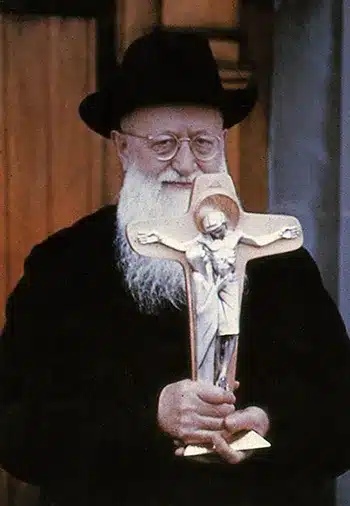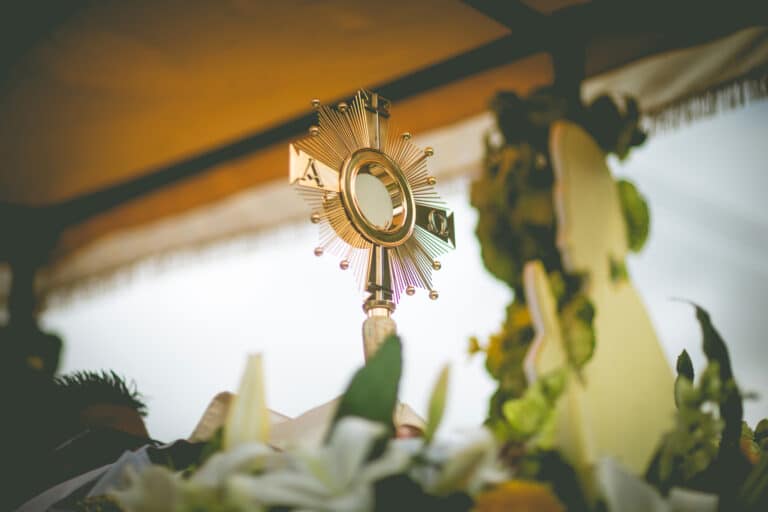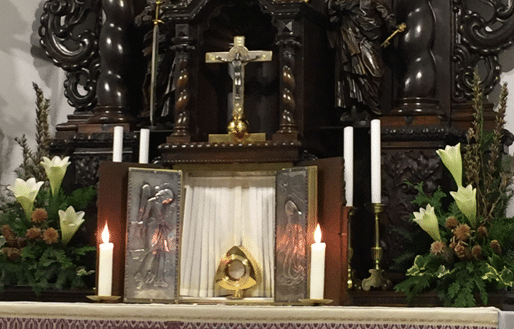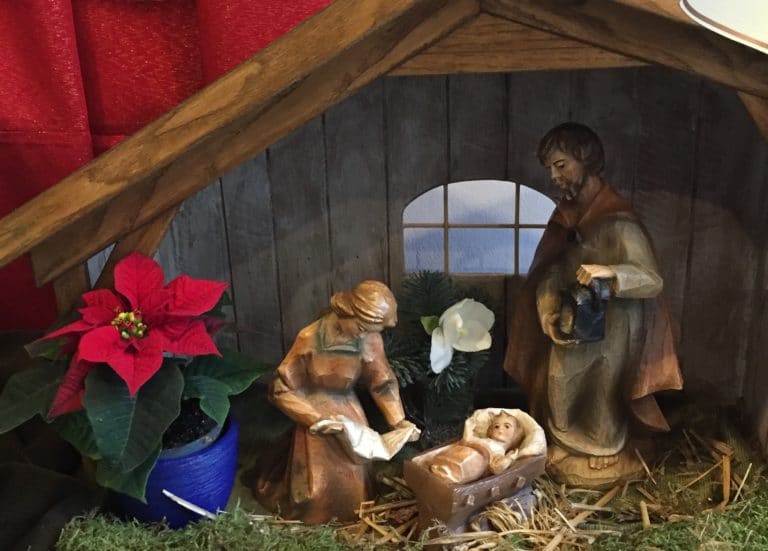It is common on many trips for drivers to be guided by GPS directions. With a device or an application, it is possible to plan the shortest, least crowded, fastest route….
Imagine you need to get to a certain place and an inner voice (very different from the GPS) points to a trickier and more complicated road, full of obstacles. You know it’s the more difficult option, but it’s the best and the right one for your life. So which path would you take?
This is more or less what Jesus experienced on the way to Easter Sunday. He knew the direction he should take; he knew the Father’s wishes. But at the same time, he understood that this path would bring him pain and suffering. We know how the story unfolded. Jesus remained faithful to the very end. With his self-offering, redemption comes to us. Throughout the years, this event has always been an actual invitation for each person to walk, with Christ, the way of the cross in daily life, in the life of the Covenant.
Father Kentenich’s example
That was also the way in Father Joseph Kentenich‘s life. It was as if he listened to that inner GPS that guided him and knew which path to take. The great milestone that characterizes his surrender to the Father’s will is January 20, 1942. On that occasion, faced with the possibility of being released from prison in the Dachau concentration camp, he decided to face the cross, because he did not want to be freed through human strategies. He wrote: “Before beginning his passion, Jesus prayed: ‘No one takes my life from me. I give it to you because I want to. I am doing this myself: No one takes my freedom from me; I give it freely. I give it because God wills it…And my sustenance, my favorite task is to do the will of the One who sent me and to accomplish his Work.”
Realistically speaking, it was very unlikely that he would get out of Dachau alive, but Mary took perfect care of everything, and it was precisely in prison that the Work grew even stronger and expanded internationally. Seen from this perspective, the Way of the Cross achieved its fundamental purpose: The outcome of his decision and dedication was the recognition that Schoenstatt is divine Work and has a great mission for the Church and the world.
The implementation in daily life
This also applies, time and again, to each person’s life. “We must all carry a cross, whatever it may be; if we flee from one, we encounter another,” writes Father Joseph Kentenich. But what attitude should we take before the crosses that life imposes on us?
 Father Kentenich, with his own example, inspires us to follow Jesus to the cross and to allow ourselves to be challenged by Him: ” In general, public opinion holds the same opinion: anything but the cross or suffering; out with all crosses and suffering! We must accept this: the cross and suffering are part of the essence of the Christian life. Every person and every family must carry on their share of crosses and suffering. This is what happened with Jesus. Jesus suffered; he suffered a lot. And we know that it was through the cross and suffering, especially through his death, that he redeemed the world.
Father Kentenich, with his own example, inspires us to follow Jesus to the cross and to allow ourselves to be challenged by Him: ” In general, public opinion holds the same opinion: anything but the cross or suffering; out with all crosses and suffering! We must accept this: the cross and suffering are part of the essence of the Christian life. Every person and every family must carry on their share of crosses and suffering. This is what happened with Jesus. Jesus suffered; he suffered a lot. And we know that it was through the cross and suffering, especially through his death, that he redeemed the world.
Covenant life calls for many contributions to the Capital of Grace, which, in their own way, consist of allowing oneself to be nailed to the cross with Christ. In difficult moments, the Unity Cross always reminds us that Mary is with us, holding the chalice and embracing those who place themselves with the Lord on the cross.
With courage and conviction, Father Kentenich teaches us to synchronize the “inner GPS” with the voice of Divine Providence. Only in this way is it possible to reach our Easter, even if beforehand there are stones and stumbling blocks:
“We must possess the most heartfelt conviction that God has drawn up a plan, not only a plan for the world, but also a plan for my personal life. Who has conceived this plan? Not only God’s wisdom and omnipotence, but also his love. […] That is why I know: in this plan there is one or another kind of suffering. To be a child of Providence means: to be certain that every circumstance – joy, pain, disappointment – is an essential element of God’s plan of wisdom, omnipotence, and love. The child of Providence, in every situation, feels that he is a beloved child of God. One must not think that God is asleep. Rather, it is as if God and I were alone in the world, such is the care with which He takes the threads of my existence in His hands”.



